The Metamovie Presents: Alien Rescue recently won the award for Best Multiplayer Experience at the Raindance Immersive 2021 | Raindance Film Festival. Let’s find out how the experience has changed in the two years since its premiere at the 77. Venice Film Festival and what’s happening in the magical world of the metaverse.
Everyone is talking about… metaverse (and if you understood this reference, bravo, you musical expert).
People who work there. People who watch the news. Even my mother talks about it. In her case, though, what she says is mostly “Did you know Facebook invented this new thing?”… which is, sadly, the same thing I heard from some students in the last high school class I taught.
Now, we all know that Facebook didn’t actually invent anything: although I myself wouldn’t know how to explain in detail to my mum what the metaverse entails (I dare you, guys, mum can be tough), several people in immersive technologies have already created awesome things with it. They’ve been doing it for years.
And yes, I already have my favourite – I’m biased that way: his name is Jason Moore and he’s the director of The Metamovie Presents: Alien Rescue, which alreadyfeatured on XRMust after its initial presentation at the 77. Venice Film Festival.
I could use many words to describe what Alien Rescue is: a theatrical play, a film, a video game, all of these things at once. But for me, who was born into the geek circuit and who is working to convince her geek friends to join the experience, there is no better way to describe it as a D&D campaign with a realistic unreal world around you and the chance to go where no D&D player has gone before. Another popular culture reference. My my, I’m on a roll today.
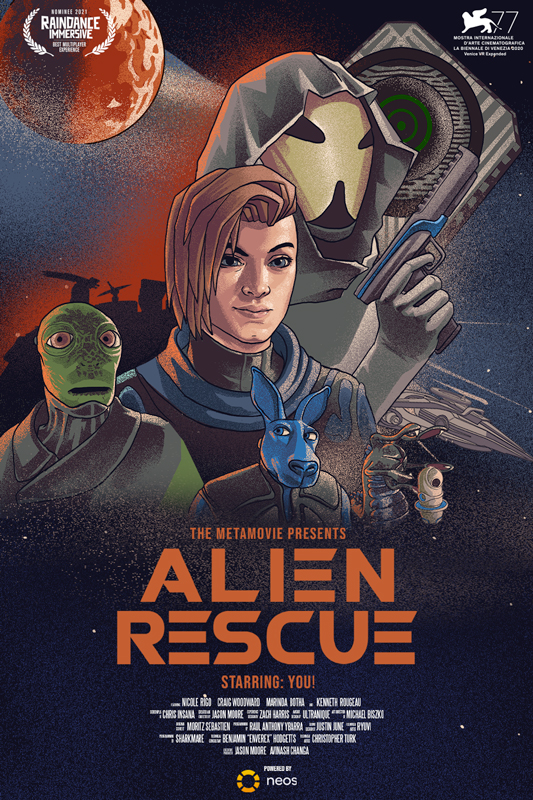
You can join Alien Rescue either as the main character, aka the hero of the story (but who knows, you might want to turn them into a villain at some point), which you characterise with the background and personality you feel comfortable with. Or, for the shyest among you, you can be one of the sidekicks – flying robots that follow the characters around, but are much more than silent observers: you can find ways to interact with the team of actors running the story, give them a personality and even have an impact on the narrative if you play well with them. And boy, aren’t they cute bots, too.
Alien Rescue came out two years ago and in those two years it has evolved, experimented, become something different and reached the potential that was already there from day one. When I first spoke to Jason, he mentioned some of the directions he wanted the story to go in, and I was almost humbled, two years later, to find out how these ideas kept coming back to them (spinning top, anyone?) and led to real results. There’s devotion there, and a clear belief in the possibilities of immersive technologies, but also a constant battle towards accessibility and the support of a team that is doing wonders to create a community around this production: just join their Discord server to see how many users now revolve around this show and support it.
And, you see, I may not be an expert on the metaverse or able to explain it to my mother, but I know a thing or two about the audience and I recognize a production that has the potential to raise a fandom from miles around.
The people who work on Alien Rescue (creatives, technologists, designers, actors, marketers, supporters, and so on) are already a community in themselves and their work is clearly shaped by passion. When the user recognises this, they cannot help but feel invited to be part of this community through which they are given the opportunity to help shape the future – and the metaverse itself. I’ve seen fandoms develop over far less relevant elements. I can barely imagine what could happen here.
But enough poetry for today and let’s get back to the practical stuff: a few days ago I contacted Jason Moore for an update on how Alien Rescue is going. It was a long video call, complete with a happy bulldog and the promise to meet up for a prosecco the next time the team comes to Italy. Here’s what he told us.
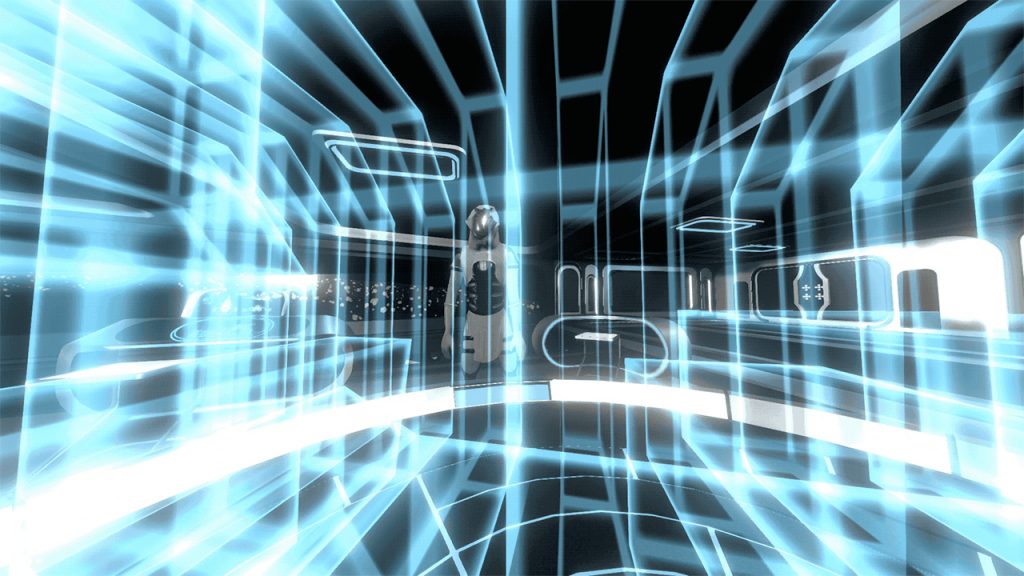
Alien Rescue: back to the Blackhawk
AGNESE – Hi Jason! It’s great to meet you again and see how much Alien Rescue has evolved over the past two years. FYI: I tried to convince all my friends to come as a group to one of its last performances…
J. M. – (laughs) One of the things we’re learning is that Alien Rescue with friends is ten times more fun than if you do it alone. We’ve done shows where there’s a hero and several of his friends among the eyebots, and the energy there is fantastic, the role-playing amazing. Will your friends come, then?
A. – I think they are a bit scared to use a technology they’re not familiar with… Tell me, is this a problem you have faced often? People who have difficulties with onboarding?
J. M. – Honestly it’s getting better. We use Neos VR for Alien Rescue and now it offers a little tutorial that you can follow the first time you enter the space. This tutorial didn’t exist when we presented our work at Venice77, so a lot of people were entering the lobby world without knowing how to turn on the microphones or how to move around. The user interface of Neos is a bit complicated actually but the tutorial made things much easier, especially if you have some familiarity with other social VR platforms like VRChat. experienced VR users have no difficulty at all.
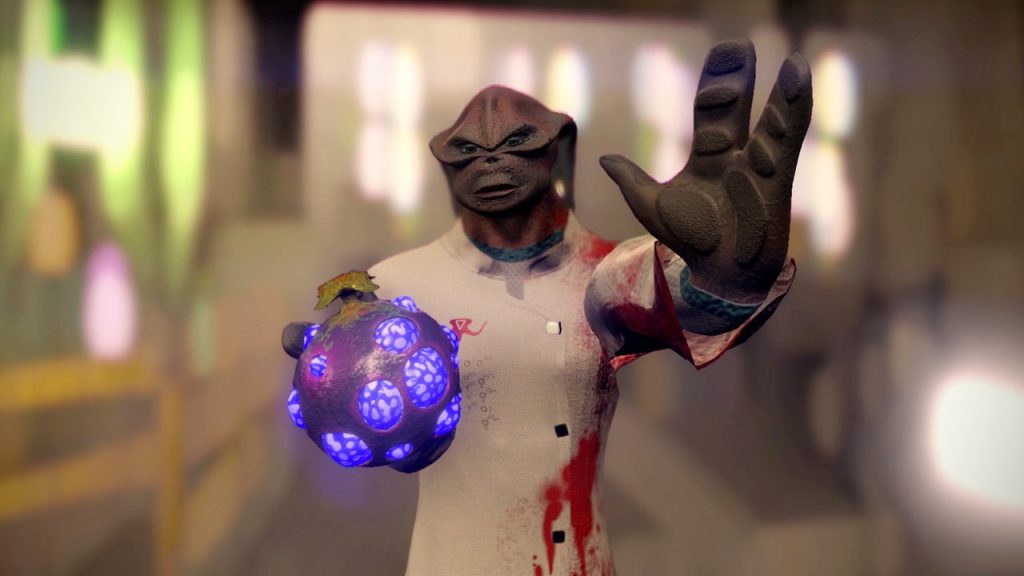
A. – Your show is now open to people who don’t have headsets but can join with a computer… something I’ve found quite useful myself and really helps accessibility. Are there currently more people joining with VR or desktop?
J. M. – I would say it’s 80% VR, 20% desktop. I’d like to have more desktop users. It’s just a matter of getting the word out and letting people know who we are.
A. – Speaking of which, I have seen you do a wonderful job on the marketing side. This is something we don’t usually talk about here, but I think your experience could be very useful to those who are trying to go down the same road.
J. M. – I think that publicity, marketing and outreach are the things that are taking up most of my time in relation to Alien Rescue. After all, the only way I can get people to the shows is to get the word out. That means I have to be on social media all the time. I try to come up with different announcements like trailers, or stills or variations of posters. I’m always thinking of things to write about the show to get people excited. I take behind-the-scenes photos and I have to keep Discord active. It’s all about fostering a community so that when people come to the show, they don’t just disappear after it’s done.
They come through and then, when it’s over, I do a post-show recap of all the different choices people made. I share with everybody who was there my look back on the show: this is what you did together, these are the choices you made, these are the funniest moments… We also take a bunch of pictures during the show and I send them all to people who were there, along with an invitation to our Discord, where we have channels for people to talk about the show, channels to share videos and pictures, and so on.
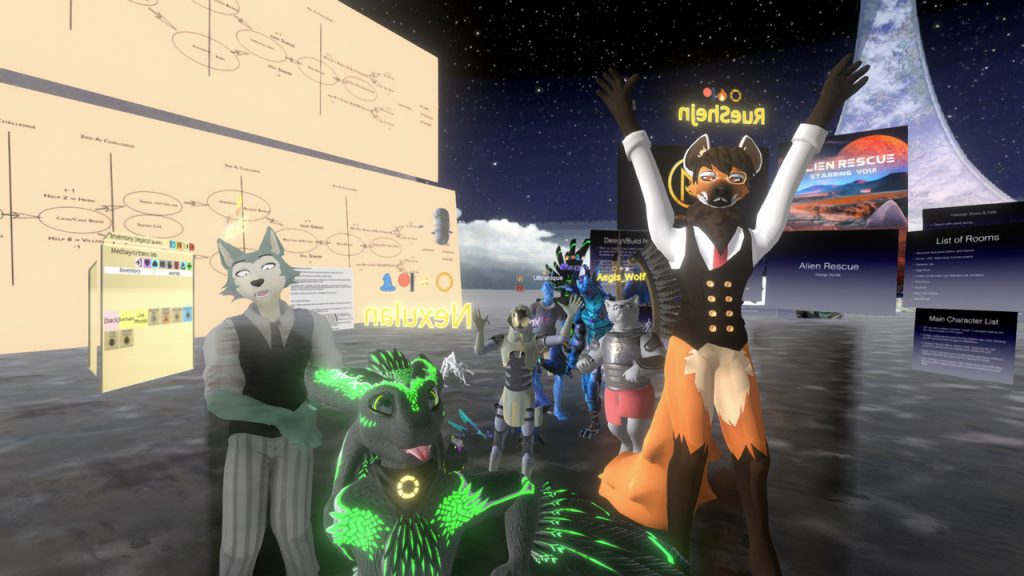
A. – You are creating your own fanbase, in other words.
J. M. – Yes, we are seeing this small but loyal group of fans who come back to share their thoughts on the show or to ask questions and chat with the actors. Sometimes they even come to see another show. I’m learning a lot about the idea of creating a small community of people and going from there to share the work that I’m doing. But it’s certainly a lot of work! Add to that the fact that I have to manage the whole ticketing process and sometimes I meet people on Neos before the show to help them understand how it works… A million little things that have to happen every day, non-stop. I’m not complaining, I’m having fun… but man, I could use a holiday!
A. – I know what you mean! (laughs)
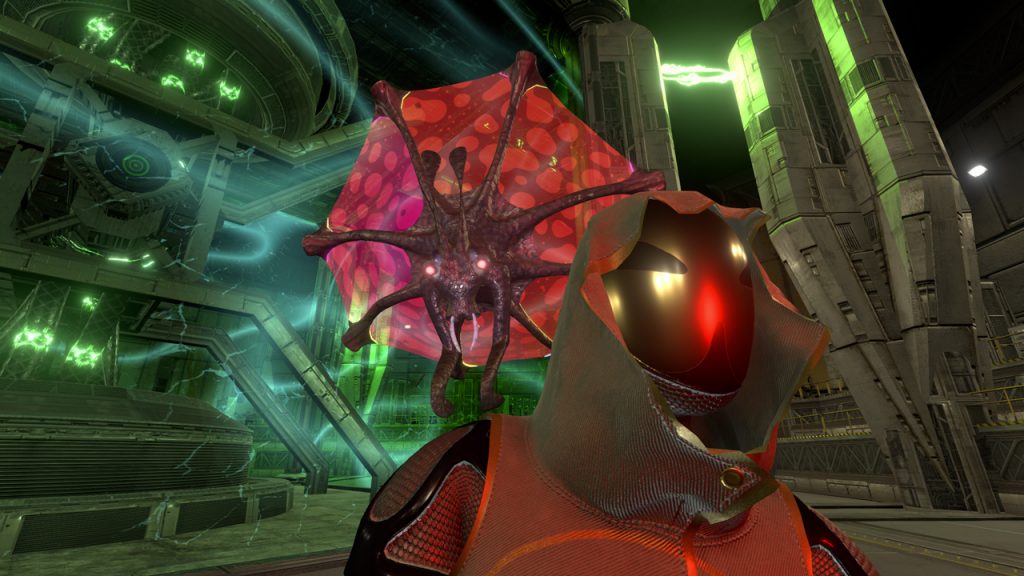
Two years of development and testing
So, the first time we spoke, you told me a lot about your plans for the development of Alien Rescue. What has changed since Venice? Is the story different or maybe just longer?
J.M. – In Venice we showed the first five scenes, and we had about eight more scenes left to write, including the ending. One thing I learned in those days, though, was that the show was longer than I had anticipated. Most of the time it took more than an hour for the hero to reach the end, so it was twice as long as I had imagined. And, as you know, spending an hour in VR can be tiring even for experienced users.
I realised I had to rethink the whole show to keep it under 1 hour 10 minutes: I cut some scenes from the first part, deleted a couple of them, added four scenes after the ones people saw in Venice and changed the ending. Now Alien Rescue lasts about 70 minutes, depending on the behaviour of the hero. If the hero is positive and engaging with the actors, the shows can go on longer, because the moment the hero starts talking, we have to put a brake on the story: the interaction with the hero is almost always just spontaneous improvisation, not tied to the script.
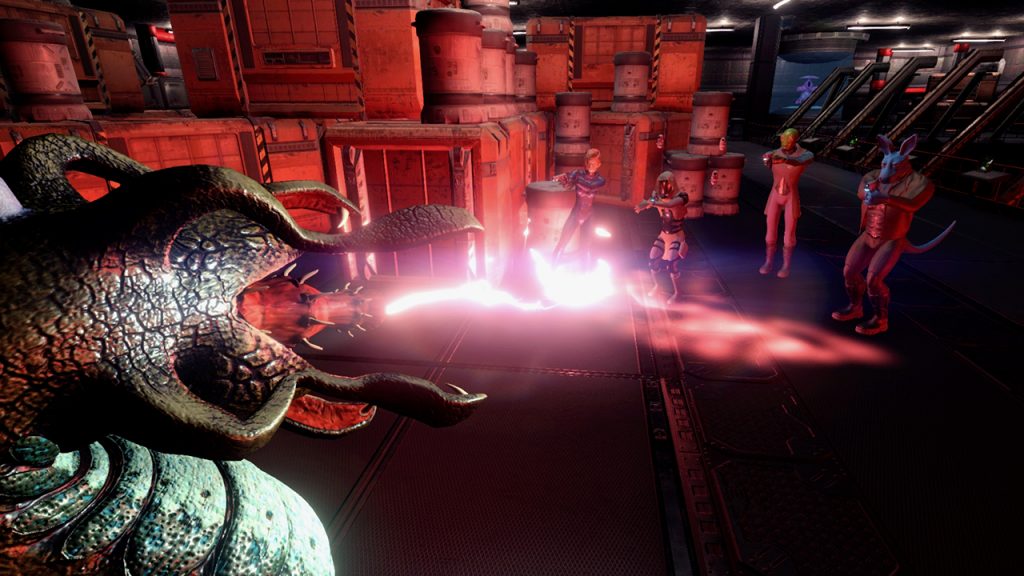
A. – The longest show?
J. M. – We had a show that lasted about an hour and a half because the hero was very busy building the character.
A. – Now, that’s a long one. Can the heroes influence the storyline, too, or just the character building and the interactions?
In Venice we couldn’t do any kind of branching plot. The story was pretty much on rails, although you could improvise and interact with the characters and make some choices along the way. But the whole vision of Alien Rescue has always been to have at least two major branching storylines: a hero arc and a villain arc, with two distinct endings depending on where people want to go. In fact, we have more than two endings, or rather, variations on the ending, little things that can be different between the heroic and villain storyline. Certain actions of the hero trigger little mini-scenes that are different depending on his choices. For example there’s this little creature running towards you that… [fades to black]
(a/n: Jason actually told me what might happen at that point but I’m not going to tell you anything because 1) I’m evil; 2) you have to try Alien Rescue yourself, what are you waiting)
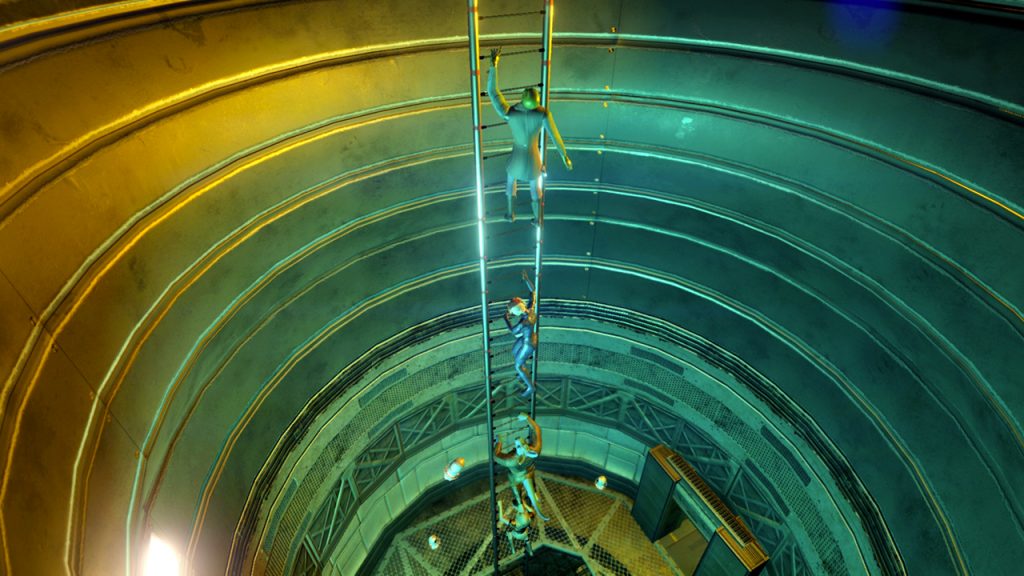
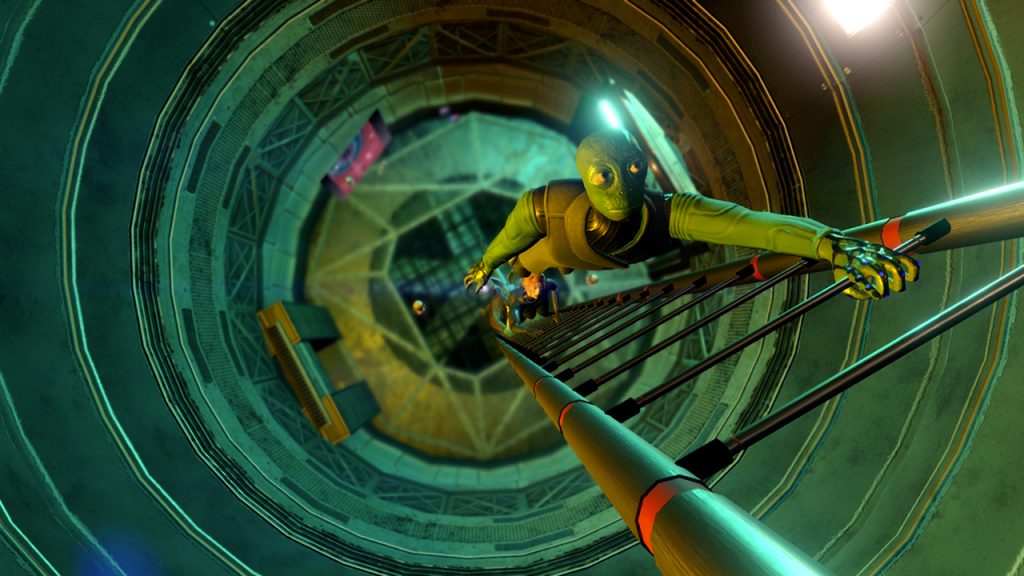
Levels of participation
A. – One character I really like, to be honest, is the Eyebots. You had big plans for their development, if I remember correctly.
J. M. I always thought of the Eyebots as very passive observers. Then we started to give them more agency and the actors started to talk to them more. We created parts of the plot that only the Eyebots could unlock and gave them the ability to flash their lights to communicate in some way.
The one thing that keeps coming up over and over again is agency: everybody wants it. The more power we give the Eyebots, the happier the viewers behind those Eyebots are. But, also, people want different levels of agency: some like to be the hero, others are too shy or don’t know how to roleplay. Eyebots are a good solution for these people.
Also, even within the group of Eyebots, you can see variations: some people really want to get in characters’ faces and be noticed, other people prefer to stay back and watch the show in a much more passive way. I’m sure there are even more variations of this binary set of passive versus active eyebots, degrees in between that we’re still discovering. For example, we had two Eyebots get on a shared voice call on Discord and move through the experience together, even though we couldn’t hear them because they were muted for the show.
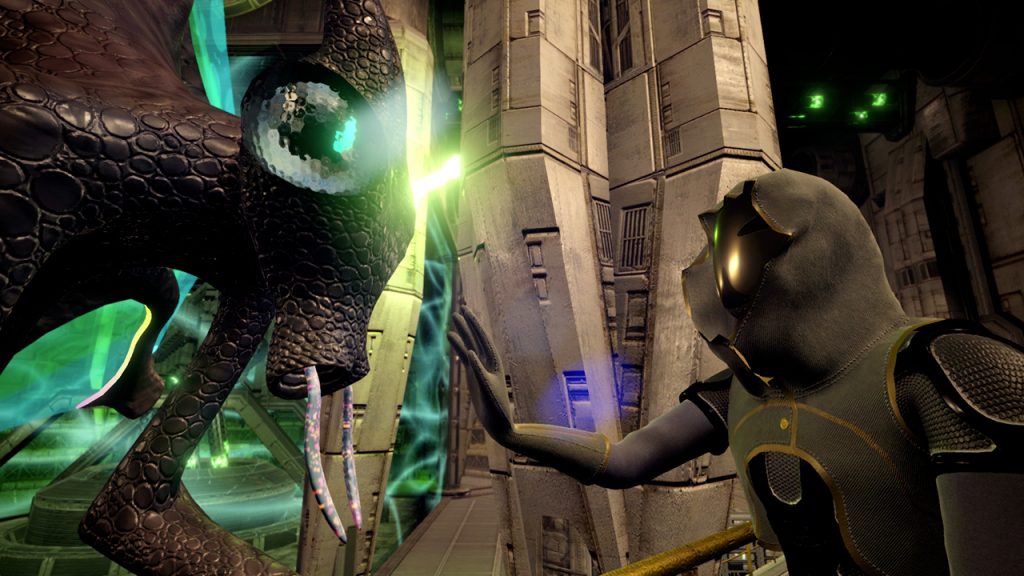
A. – In a way, Eyebots can have their own personality, then!
J. M. – They do! A lot more than we ever imagined. They’ve been very interesting characters to discover. As I said, they can now communicate, which we didn’t allow them to do before. Lights are a very easy visual way to communicate with the hero and the cast of characters and can be used without interrupting the show. At the moment that’s my biggest concern with the idea of having them actually talk: it could be absolute chaos… but I still want to try. What matters to me, though, is that the eyebots have to roleplay too. I’m very cautious about losing suspension of disbelief. For example, one thing that’s important to me is that the hero understands that what we’re asking of them is to roleplay as a character. All the cast is roleplaying. That’s why, if a hero mentions something from our real world, my actors tend to discourage them: they look confused and go on with the story.
That’s something that would be difficult to control with talking Eyebots; if we ever got one to talk, we’d do it in very slow and cautious stages, because I only want them to talk if they can be in character.
A. – You really are experimenting a lot with this show.
J. M. – We are. One of the things we just did, for example, was to have two heroes at the same time, instead of one. AND it was amazing! We had the amazing Hambone and VBunny (VR streamers/influencers) who are husband and wife, and that is how they role played their characters. The extra energy with an added Hero was electrifying, it surpassed my expectations by far. They even had this one scene where it was only them and a few eyebots, the rest of the cast was off doing something else, and it was just incredible to see them in character debating a choice they wanted to make, with just the Eyebots there to watch. It was one of my all time favorite shows and we are DEFINITELY doing more of this. Later on we might try having three or four heroes and see how that works. Each of these experimental shows will teach us a lot about how to work with these technologies.
I’m also toying with the idea of offering an invisible Eyebot ticket, because maybe some people feel shy even at the idea of being observed. I think that’s a useful test to do. In the end, what’s important is to think about who you’re asking your audience to do and what kind of role you’re asking them to roleplay. Some characters will be easier to play than others and some, for some people, may be literally impossible to role. There are billions of people on this planet and everyone is different so every audience will be different. Me and my colleagues in other studios, we are all trying to find the right combination of roleplay: passive, intimate, interactive… It’s complicated and you can only find your answers by trying and testing your work. That’s the problem: you can’t intellectually solve the problem. You have to put it out there, create it and then test it.
A. – Which is what you did with the first version presented at the Venice Film Festival, right?
J. M. – Venice gave us the opportunity to show a work in progress and I learned a lot then about where I wanted this project to go. Because of that experience, I made some very important decisions that really pivoted Alien Rescue in a very different way than I had originally planned. And it turned out so well! I’m so happy about that and… really grateful to have had this opportunity. Without it I probably would have continued down that other road and would still be working on it today. Now it’s over. We’ve done it. And it’s working very, very well. I have to tell you that I’m really pleased with it. Even beyond my expectations. We did it!
A. – I have to ask… Metaverse. Now that Facebook is so involved in it, people who have never heard this word before have become familiar with it. So, I’m wondering: is it a positive awareness or not? Has it changed anything for your work?
J. M. – It’s a great topic and a very important one. I was interviewed on it for All Things Considered, a national tv-show on the National Public Radio (NPR). We talked about Meta and Facebook and the metaverse in general. There were two people on the show, a Facebook representative, talking about why Meta is so awesome and cool, and then there was me, talking about why it wasn’t so awesome and cool.
Since Facebook decided to change its name, change its mission, and invest all this money, it immediately brought massive global attention to something those of us who worked in the metaverse space already cared about. The idea that more people are buying VR headsets and VR games, and potentially learning about Alien Rescue and the metaverse, is great news for all of us. It takes big companies spending billions of dollars to help grow these things. But the problem is, Facebook has a terrible track record in terms of ethics. We have a very clear record of scandal after scandal of Facebook as a company that basically does everything it can to help itself, with total disregard for anyone or any other company. Take what happened to Palmer Luckey, the guy who invented the first really good VR headset!
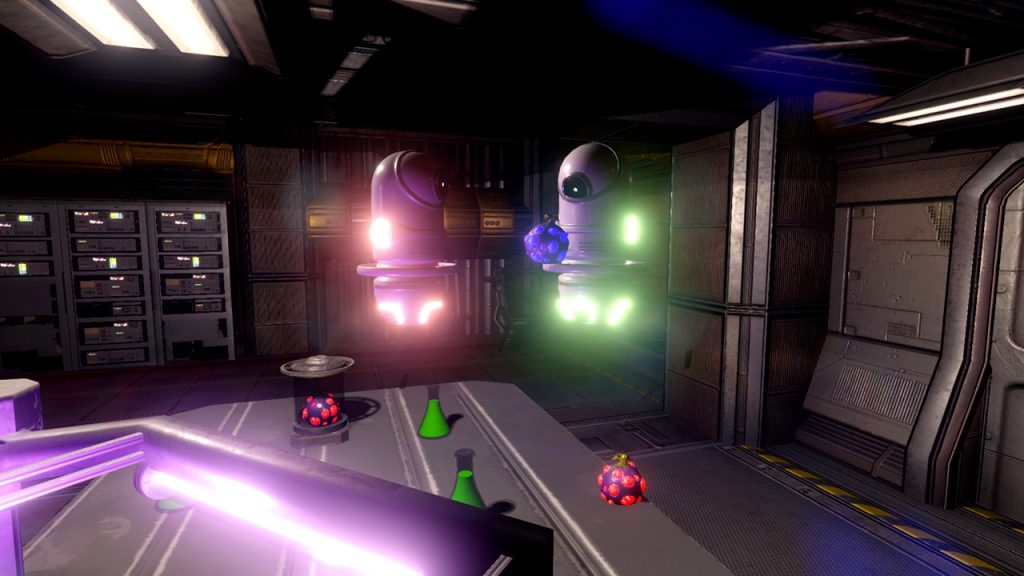
Recently, an internal memo of theirs leaked: it said that their goal with the metaverse was essentially to build it and put everyone else out of work. When that memo leaked, they immediately explained that they had thought about it at first, but now it wasn’t their intention anymore because they wanted to be inclusive. Honestly, I don’t think I believe them that much.
Also, publicly, what they have stated is that they want to build an infrastructure/network where companies interested in the metaverse can coexist. But they already have their own metaverse, Facebook Horizons, which is a direct competitor to VRchat, to Recroom, to Sansar, to Neos, all existing VR metaverses that are in their infancy right now. So, Facebook isn’t just building a network and an infrastructure: they’re also building a world that is a direct competitor to every other world out there. The danger is that they build the infrastructure, they tell you that you have to meet their terms to work there, and then they slowly buy up the other companies or force them out, so that only Facebook remains. That possibility is terrible, especially in relation to something as important as the metaverse, which should be as open as the internet is. Companies can work on the internet, but nobody controls the internet itself.
So on the one hand I’m thrilled that Facebook is pouring money and energy into this space, but on the other hand… I’m honestly terrified.
A. – What could be done about this by all of us?
J. M. – We can’t really stop Facebook from building what they’re going to build, but what we can do is make sure that if they break laws or behave unethically along the way, they’re held accountable for it, with whatever power we have, whether it’s the press, or even lawsuits. We need to support independent creators and all those people who will work outside of the Meta / Facebook ecosystem, so that there is an alternative, at least. What we really need is a separate ecosystem that is open, democratic, that adheres to ethical standards. And if we do that, then maybe we can find a way in which they will let us coexist! It’s certainly an interesting time. Exciting but scary.
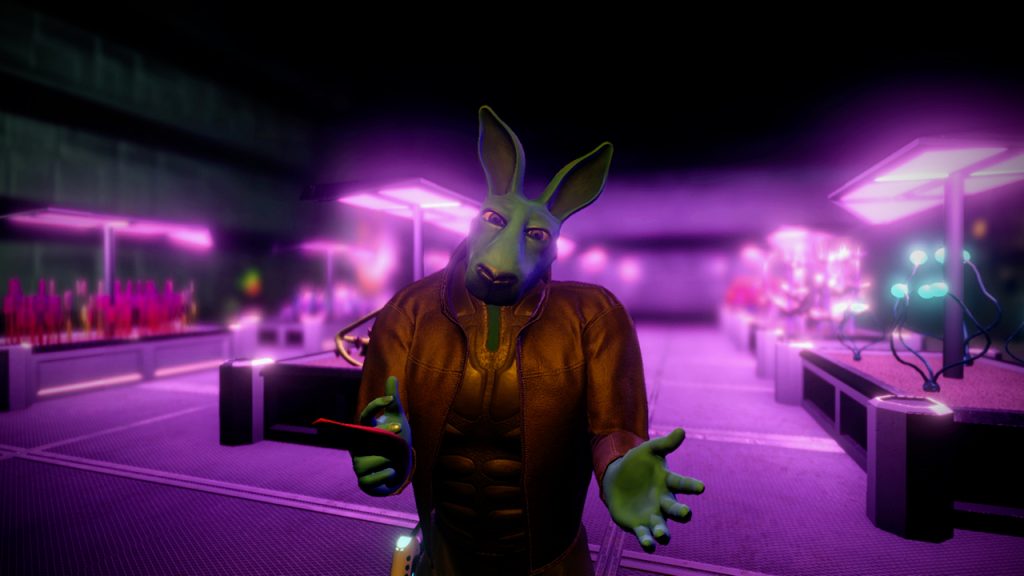
A. – The times, they are changing. Things that were impossible three years ago are now literally in front of us!
J. M. – I’ve been doing a bit of world hopping, and what you find is incredible. I recently visited a world in Neos called Time & Gears (by GAWAWA) that I had never been to before and I couldn’t believe what I was looking at…. I had never seen or experienced anything like it. I had goosebumps, my jaw was open the whole time! It’s exciting to be here in 2021 and already have a taste of what’s to come along the way.
“Team up with a band of alien-rights activists to help rescue the Zibanejor, a rare and noble alien creature being held captive at the secretive Kelosite Research Facility. Known to have the most toxic blood in the universe, the Zibanejor has become the potentially catastrophic project of scientists set on creating a weapon of untold devastation.
With the ruthless intentions of the Kelosite’s shadowy faction – and a massive facility full of harrowing encounters – between you and the liberation of the Zibanejor, this mission will be the ultimate test of your wits, battle readiness, and where your loyalties truly lie” – official site
The Metamovie Presents: Alien Rescue is a work created by Jason Moore. Exective producers: Jason Moore and Avinash Changa. Main cast includes Nicole Rigo, Kenneth Rougeau, Craig Woodward and Marinda Botha.
Tickets for next performances (January 2022) are available at this link. See you there, folks!
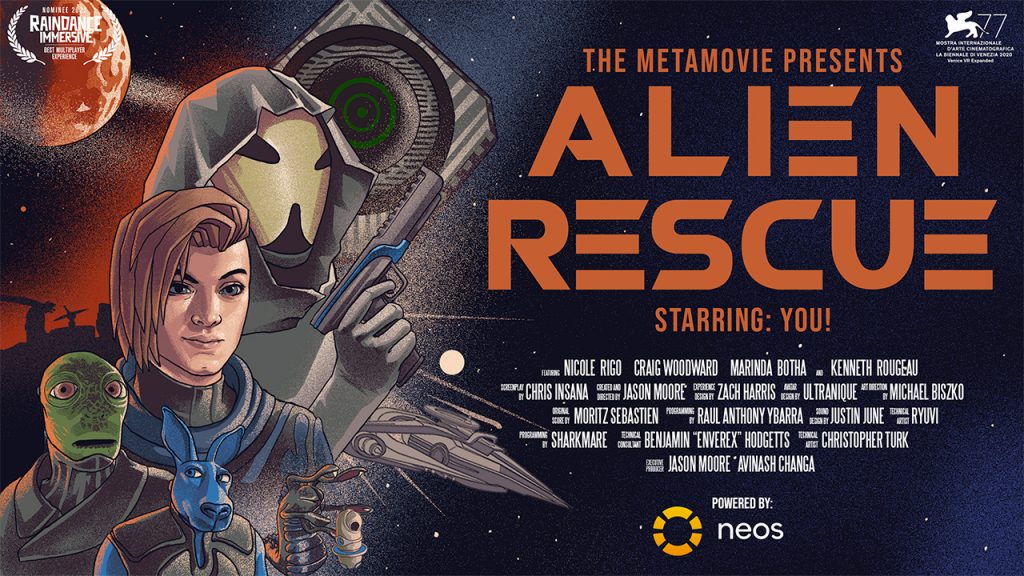

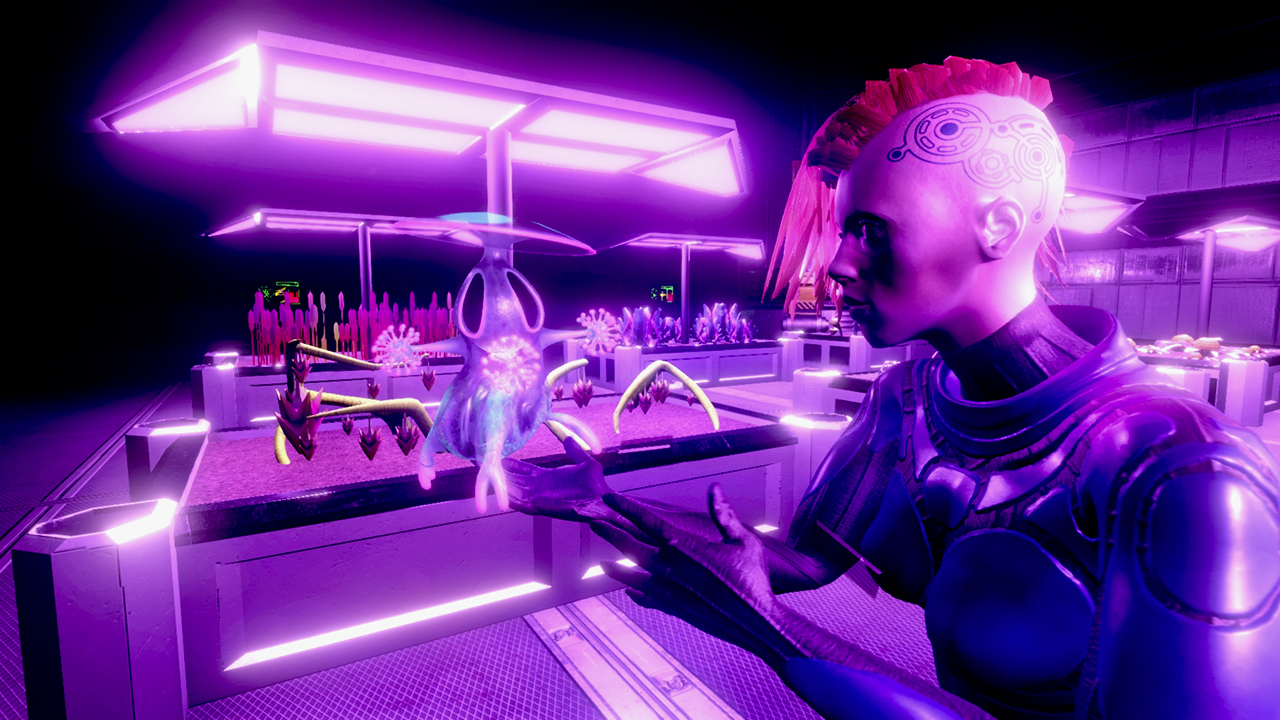

Leave a Reply
You must be logged in to post a comment.